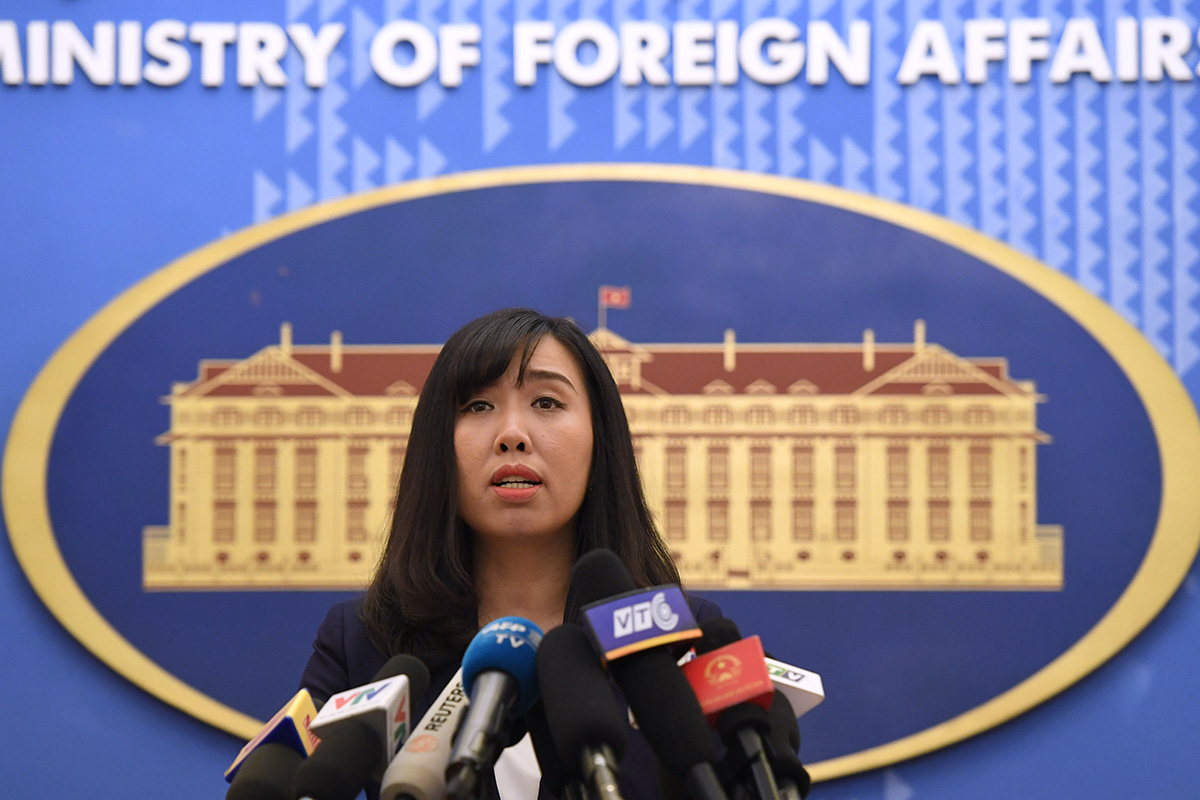It could have been a scene from a spy novel.
German authorities in August accused Vietnam’s government of abducting the former chairman of state-owned PetroVietnam Construction JSC – who was in Germany seeking asylum – and whisking him back to Hanoi to face corruption charges.
Berlin ordered Vietnamese intelligence officers to leave the country, even as Vietnam’s Ministry of Public Security said Trinh Xuan Thanh chose to surrender. He faces trial as soon as January.
The diplomatic spat – which strained ties with one of Vietnam’s key trading partners – highlights a crackdown on graft reminiscent of the sweeping campaign enacted by Communist neighbor China when Xi Jinping came to power in 2012. Like China, Vietnam has warned that corruption could risk the party’s legitimacy and hold on power as the public grows more intolerant of graft.
This year the campaign has snared senior cadres like former Politburo member Dinh La Thang, who was chairman of state-owned PetroVietnam, and Nguyen Xuan Anh, head of the party unit in Danang. But, similar to China, the move in one of the world’s fastest-growing economies also underscores just how widespread graft is.
Social Stability
“The Communist Party, and especially the prime minister and his cadre, see social stability as being really important and that can be imperiled if corruption gets out of control,” said Fred Burke, managing partner at law firm Baker & McKenzie (Vietnam) Ltd., who sits on government advisory committees. “If you ask people what they are most unhappy about, that is what they say: corruption.”
Thanh, Thang and Anh or their representatives didn’t respond to phone and email requests for comment.
The crackdown gained momentum after a new administration took power in 2016. Communist Party General Secretary Nguyen Phu Trong last month ordered the courts to hasten the pace of corruption trials.
Vietnam “takes seriously both preventing and fighting against corruption” and the need to “muster the entire political system” to do so, a government website said in late July, citing Trong.
In a single-party political system, though, there is little transparency. That limits the scope for weeding out graft, said Carlyle Thayer, an emeritus professor at the Australian Defence Force Academy in Canberra.
Independent Audits
“There is corruption going on left, right and center,” he said. “How do they pick someone to prosecute? Where are the independent audits, independent prosecutors, the independent press? It’s like a booster shot. It will wear off over time. It’s a political decision whom to go after. It’s not like having an independent FBI churning away.”
Vietnamese courts held about 220 corruption trials this year – covering both the public and private sector – up 21 percent from 2016, according to a report by Nguyen Hoa Binh, chief justice of the Supreme People’s Court. The state inspectorate has uncovered at least 190 new fraud cases involving state funds, Prime Minister Nguyen Xuan Phuc said in October.
In September, Nguyen Xuan Son, another former PetroVietnam chairman and the ex-chief executive officer of Ocean Commercial Joint Stock Bank, was sentenced to death after being convicted for embezzlement. Ha Van Tham, former chairman of Ocean Commercial Joint Stock Bank, was given a life sentence after being found guilty of the same charges.
Son and Tham or their representatives didn’t respond to phone and email requests for comment.
So far, the crackdown has been well-received by investors, said Hoang Thach Lan, head of the individual investor division at RongViet Securities Co. in Ho Chi Minh City. “It boosted their confidence in doing businesses in Vietnam and that helps the stock market,” he said.
Vietnam’s benchmark VN Index has jumped about 43 percent this year and is on course for its best performance since 2010, spurred by foreign inflows. The government has targeted 6.7 percent economic growth this year, which would be the fastest since 2007. The economy grew 6.41 percent in the first nine months of the year.
Phuc, who spearheaded reforms under the previous premier, is making the reduction of corruption and red tape a central policy. In January, he put in place a master plan to boost the number of government and private sector transactions done online, to reduce the scope for bribes.
Hanoi has long grappled with corruption. Former Prime Minister Nguyen Tan Dung apologised in a televised broadcast in 2012 after facing criticism for the government’s handling of Vietnam Shipbuilding Industry Group, or Vinashin, the state-run firm he championed that almost collapsed under $4 billion of debt that year. The company has been renamed Shipbuilding Industry Corp.
“Corruption is hurting the economy,” Thayer said. “For political and economic reasons, they have to go after corruption.” – Bloomberg
Recommended stories:
